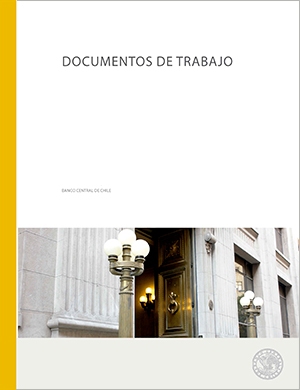Working Papers N° 888: Does the Exposure to the Business Cycle Improve Consumer Perceptions for Forecasting? Microdata Evidence from Chile
Publications
Working Papers N° 888: Does the Exposure to the Business Cycle Improve Consumer Perceptions for Forecasting? Microdata Evidence from Chile
Autor: Fernando Faure , Carlos Medel
Description
Given the lag with which the official consumption series are released and the anticipation with which consumption confidence indicators are published, there is latent attention in assessing the predictive power of consumer confidence over consumer spending. In this article, we make use of a rich and unique individual-level dataset obtained by merging a consumer sentiment survey with an unemployment survey of the Greater Metropolitan area of Chile’s capital city. This is aiming to: (i) analyse how forecasts of private consumption and components are improved by consumer sentiment indexes constructed using the labour market characteristics of respondents and re-focusing aggregate answers according to timing and subject, and (ii) analyse to what extent a greater exposure of consumers/workers to the business cycle comes out as a better capability to nowcast and short-term forecast consumption. Considering that consumers work in sectors where decisions are taken based to a greater or lesser extent on the current and future economic situation, we assume a learning mechanism permeable to the sentiment of workers that is present when they are surveyed as consumers, referred to as “exposure”. Since the exposure is extensible to investment decisions, we include total investment and its components in the analysis. By means of auto-regressions, our results suggest that the in-sample adjustment of a simple model improves in most cases when any of the newly built factors are included. Although there is no silver-bullet definition of the factor helping all aggregates across all horizons simultaneously, future-oriented factors as well as information coming from consumers working together in Commerce, Industry, Construction, and Personal Services sectors provide material predictive gains, ranging from 4.5% to 40.2% at one-year compared to the non-augmented auto-regression. Although surveys of consumers’ perceptions provide rich information, these results are important since it is necessary to disentangle ideally from the most disaggregate level to have a better revealing economic behaviour.
Working Papers N° 888: Does the Exposure to the Business Cycle Improve Consumer Perceptions for Forecasting? Microdata Evidence from Chile
Boxes and graphics

